Polymers Petrochemicals Recycling Automotive 04-04-2019 - Arhive
- China – Polyethylene Terephthalate
- PET and its chain are assessed mixed, with the crude oil always in good health.
- Polyamide 6 and its chain are steady,the slight recovery seems already exhausted.
PET Bottle grade export 1,060/1,110 $/ton – PET Bottle grade domestic market 8,500/8,650 yuan/ton – PET Filament grade SD domestic market 7,700/7,800 yuan/ton – PET Filament grade BR domestic market 7,750/7,850 yuan/ton
PTA Taiwan 840/850 $/ton – PTA domestic market 6,400/6,550 yuan/ton – MEG $ 600/610 $/ton – MEG domestic market 4,700/4,800 yuan/ton – PX Korea 1,005/1,015 $/ton
POY 150D/48F domestic market 8,950/9,050 yuan/ton – DTY 150D/48F domestic market 10,500/10,650 yuan/ton – PSF domestic market 8,700/8,850 yuan/ton
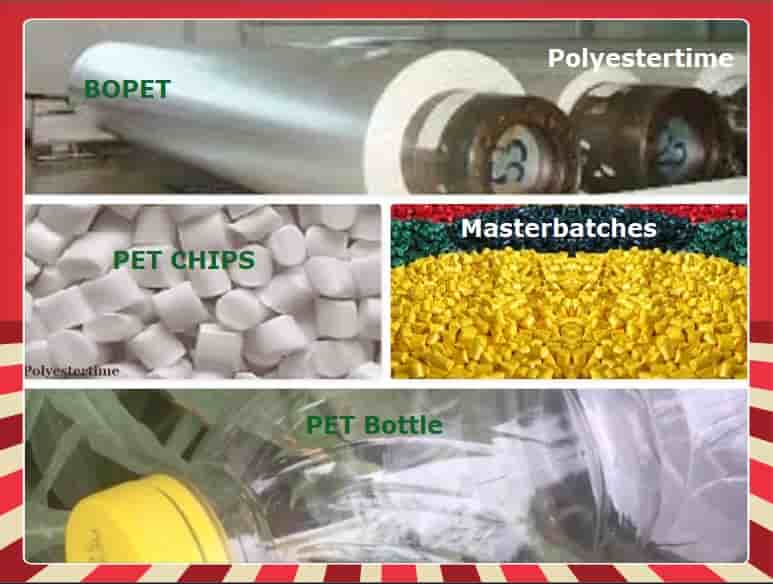
In 2016, 170 kg of packaging waste was generated per inhabitant in the EU (varying from 55 kg per inhabitant in Croatia and 221 kg per inhabitant in Germany).
From 2007 to 2016, paper and cardboard was the main packaging waste material in the EU (35.4 million tonnes in 2016) followed by plastic and glass (16.3 million tonnes for each of these waste materials in 2016).
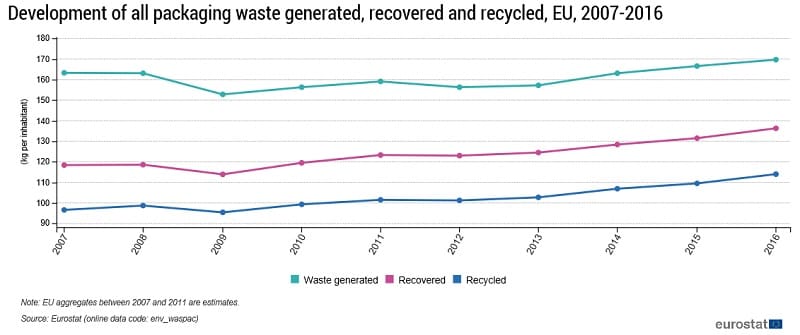
Britain took a decisive step away from a damaging no-deal Brexit as members of Parliament and political leaders backed efforts to prevent a disorderly departure from the European Union.
The House of Commons vote shortly before midnight Wednesday to block a no-deal divorce destroyed the dream of some of Prime Minister Theresa May’s Conservative Party members for a clean break with the bloc as soon as next week.
The bill — which May herself opposed — won by a single vote and will now move to Parliament’s upper chamber to complete its progress Thursday.

Crude Oil Prices Trend

Western Research Institute and academic and industry partners advance into the second year of a research project to turn coal, crude oil and biomass into low-cost carbon fiber.
A research project led by Western Research Institute (WRI, Laramie, Wyo., U.S.), aimed at lowering the cost of carbon fiber for use in the automotive industry, has been approved by the U.S. Department of Energy (DOE) to proceed into the second year of a three-year program.
The carbon fiber research project, titled “Consortium for the Production of Affordable Carbon Fibers in the United States,” supports the program goals of the DOE Vehicle Technology Office (VTO), within the Office of Energy Efficiency and Renewable Energy (EERE), to reduce the weight of cars by lowering the cost of carbon fibers to $5 per pound or less, which reportedly will result in improved fuel economy and reduced emissions. The initial cost analysis from WRI predicts that the cost to produce carbon fiber will be lower than the $5 per pound target identified by the automotive industry.

Cross-polarized light optical microscopy micrograph showing the progress of mesophase during pyrlysis of iCTP6-MMP showing very large mesophase spheres starting to coalesce into a continuous phase. Source | Western Research Institute
The result announced today is a further step forward by the two Companies, with an increasing focus on sustainable mobility.
It is a tangible contribution to reducing emissions and environmental pollution.
San Donato Milanese (Milan), 3 April 2019 – Within the scope of the agreement signed in November 2017, Eni and FCA have teamed up to develop “A20”, a new fuel with a low level of emissions due to its 15% methanol and 5% bio-ethanol alcohol content.
By harnessing its low carbon content, bio component and high octane number, the new alternative fuel emits up to 3% less in CO2 exhaust emissions quantified using the new Worldwide Harmonized Light Vehicle Test Procedures (WLTP).
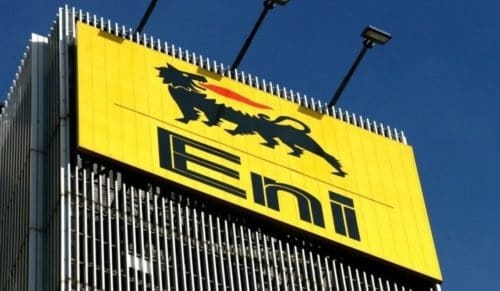
The polyolefins market needs toaddress the dark side of plastics beforeconsumers can take notice of the product’sbenefits, a chemicals executive said onWednesday.
Gerald Rebitzer,director for sustainability at Amcor Flexibles,a subsidiary of Australia-headquarteredpackaging firm Amcor, went on to talk about thefuture prospects for single-material flexiblepackaging.
“Plastic packaging has a lighter environmentalfootprint than other materials” like glassbottles, aluminium cans or compostable cartons,said Rebitzer.
However, until the market addresses the badimage of plastics and the environmental andrecycling concerns, the many benefits fromusing plastics are irrelevant, the executive atAmcor added.
He was speaking at the 8th ICIS WorldPoylolefins Conference.

In coming years, recycled PET and polyolefins will likely have to continue competing with cheap virgin plastics. But scrap markets will also be impacted by uncertain government policies and brand owner decisions.
Those were a couple of takeaways from the annual markets panel at the 2019 Plastics Recycling Conference and Trade Show, held in March in National Harbor, Md. During the plenary session, Joel Morales and Tison Keel, both of integrated consulting firm IHS Markit, discussed the market dynamics for virgin plastics and explained how those factors will pressure recovered material prices.
In discussing PET markets, Keel used the imagery of multiple factors converging to create a perfect storm.

The constant drumbeat of food and beverage companies announcing plans to one day shift to 100% recyclable packaging is laudable.
Yet such efforts will mean little if the global recycling industry remains in disarray. In many municipalities around the world, materials collected for recycling are not being recycled.
China was once the world’s leading importer of recycled materials, but beginning in 2018 the country imposed stringent requirements on the recyclable materials it would accept and raised processing fees that triggered a sharp reduction in imports.
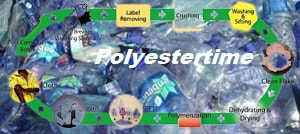
Asia’s naphtha prices wereunderpinned by consistent end-user demand,which is expected to prevail in the near term.
In early trade on Wednesday, open-spec naphthaprices for second-half May delivery stood at$573.75/tonne CFR (cost and freight) Japan, upby $6.25/tonne from the previous day’s close,according to ICIS data.
Spot prices were up by some 6% in comparisonwith month-earlier levels, ICIS data showed.
Naphtha prices tracked gains in global crudeoil futures, to which the petrochemicalfeedstock is closely related.
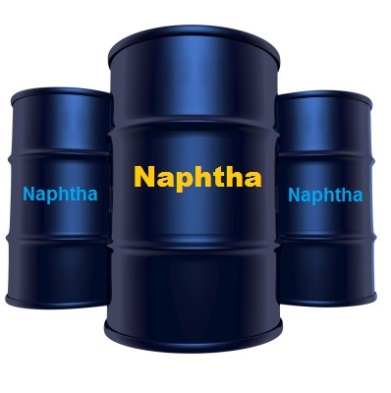
Polyethylene (PE) “is not trash” and allows the growth of the middle classesaround the world, an executive at US chemicalsmajor Dow said on Wednesday.
Greg Bunker, globalbusiness director at Dow for low densitypolyethylene (LPDE), made his remarks when hewas addressing the bad image of the plastic inthe midst of a push for more plasticsrecycling.
He was speaking at the 8th ICIS WorldPoylolefins Conference.
Plastics have had bad press in recent years,with single-use plastics in particular causingoutrage.
In 2019, a UK documentary series directed bybroadcaster and natural historian DavidAttenborough, Blue Planet, reached aglobal audience and showed the extent of theproblem with plastic litter.
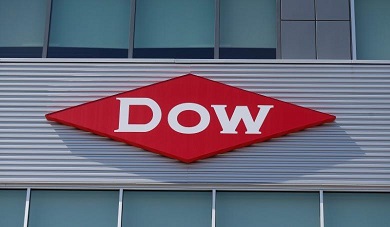
At The Packaging Conference, materials and equipment suppliers introduce innovations to facilitate greater recycled content in PET packaging and increase recyclability of this format.
TPC_Eastman.jpgTPC_KHS.jpgTPC_SIPA1.jpgTPC_rPlanet.jpgPackaging has long been labeled the villain by many consumers who see it merely as waste.
Today that sentiment has reached a fever pitch as consumers are inundated with images of beaches and waterways overflowing with discarded packaging.
The most visible culprit: single-use plastic packaging.
As a result, every major CPG has made commitments around the use of recycled-content and recyclable plastic packaging.
At The Packaging Conference, a number of packaging materials and equipment companies presented technology innovations that have been designed to help CPGs reach these goals, in particular with PET.
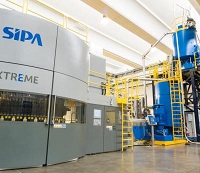
- Borealis and Borouge Announces the New Compounding Plant of Borealis in Taylorsville, North Carolina
Borealis underscores its global commitment to the automotive industry – BorealisGroup.com. Borealis
Major capacity increase for automotive compounds introduced in North America.
- New Borealis polypropylene (PP) compounding plant in North America has successfully started up during Q1 2019;
- Site at Taylorsville, North Carolina, will significantly strengthen Borealis and Borouge’s global supply capability for thermoplastic polyolefin (TPO) and short glass fibre (SGF) compounds;
- Innovative 10 percent mineral filled Daplen™ low-density modified PP for lightweight, aesthetic and low-emission automotive interiors on the road in ŠKODA’s new SCALA compact car.
Borealis and Borouge have announced that the new compounding plant of Borealis in Taylorsville, North Carolina, has come on stream during Q1 2019 as planned, with the inauguration of the facility scheduled for 16 May 2019.

Beaulieu Fibres International, Europe’s largest producer of polyolefin fibres, was nominated for the 2019 essenscia Innovation Award for its recently introduced UltraBond fibre.
The Award
The biannual award is the most prestigious prize for industrial innovation in Belgium. Created by essenscia, the Belgian Federation for Chemistry and Life Sciences industries, it aims to promote innovations in the Belgian industry and encourages companies to invest even more in innovative and sustainable products and applications.
During the evaluation of the nominated innovation projects, the jury assesses their link with chemistry, life sciences and materials, their contribution to sustainable development, their intellectual property management strategy as well as their added value for the economy.

US polyethylene terephthalate (PET) prices will remain flat in April despite increasing upstream paraxylene (PX) values for March as demand is slowly improving, sources said on the sidelines of PLASTIMAGEN MEXICO 2019.
“It is a buyer’s market right now. Demand is better, but it needs to improve,” the source said. “Cold weather conditions and frequent rains this winter dampened demand levels.”
Prices were mostly stable throughout March following a 3-5 cent/lb hike in February.
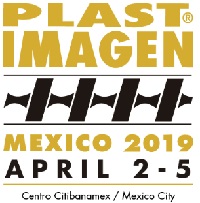
Today, two major U.S. synthetic yarn producers – Unifi Manufacturing, Inc. (“Unifi”) and Nan Ya Plastics Corporation, America (“Nan Ya”) – filed a “critical circumstances” allegation regarding imports of polyester textured yarn from China in an ongoing trade remedy investigation.
The critical circumstances claim charges that imports of the yarn surged into the United States in order to avoid the imposition of duties. If the allegation is proven, importers could face significant duty liabilities.
The critical circumstances provision allows the U.S. Department of Commerce (the “Commerce Department”) to apply antidumping and countervailing duties retroactively if the agency determines that certain criteria are satisfied.US polyethylene terephthalate (PET) prices will remain flat in April despite increasing upstream paraxylene (PX) values for March as demand is slowly improving, sources said on the sidelines of PLASTIMAGEN MEXICO 2019.
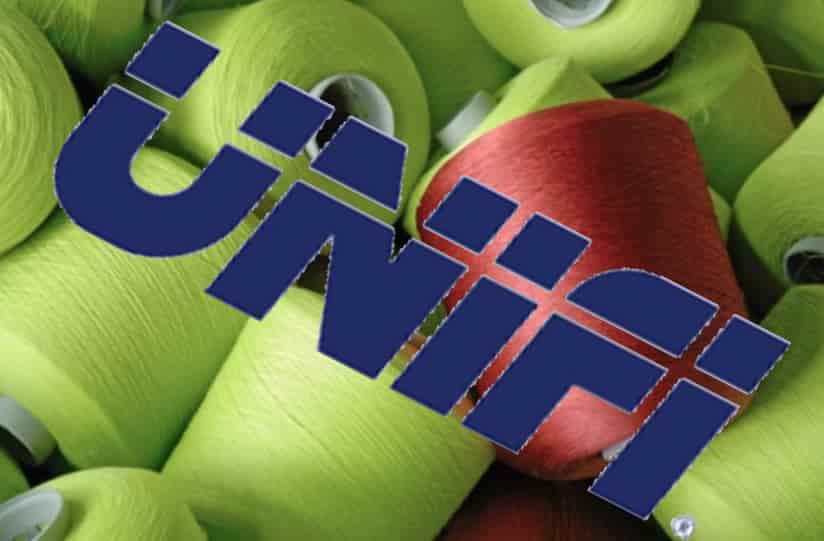
Indorama Ventures (IVL), a global chemical producer, has completed the share purchase of 83,000,000 newly issued shares in Indo Rama Synthetics (India) Limited (IRSL), equalling to around 31.79% of IRSL’s enlarged share capital at the price of INR 36 per share.
IRSL is India’s largest dedicated polyester manufacturer with an Integrated manufacturing complex in Butibori, near Nagpur, in Maharashtra, with production capacity of 605,000 tonnes per annum of polyester staple fibre, filament yarn, draw texturised yarn, fully drawn yarn and textile grade chips.

SINGAPORE (ICIS)–China’s domestic purified terephthalic acid (PTA) prices may gain further on the back of healthy fundamentals in spite of an expected weakness in feedstock paraxylene (PX) values; with the PTA-PX spread likely to widen further in the coming months.
Spot PTA prices rose to yuan (CNY) 6,600/tonne ($984/tonne) on 29 March, up 1.5% from the previous week, according to ICIS data.
Market gains are likely to continue as demand is strong from downstream polyester industry, while output losses from scheduled turnarounds in the near term will offset the expected supply increase from a new plant starting up this month.

March turned out to be another broadly stable month for PET recyclers in Germany. Coloured and clear flakes and, above all, rPET pellet for use in bottle production remain highly sought-after. However, film producers were apparently ordering less flake material, recyclers said. They believe that converters had also built up inventories for peak season during the first months of the year when arisings were surprisingly strong.
Flake and regranulate prices have not budged in the meantime, according to market players. Flake prices are on a similar level as primary PET, while recycled pellet for use in beverage bottles commands much higher prices.

The new process manages polyester applications without any compromise on run size, design, substrate or labor
Kornit Digital Ltd., a worldwide market leader in digital textile printing innovation has reportedly unveiled the Kornit NeoPoly Technology which is termed as the industry’s first digital, industrial process for top-quality printing on polyester.
Seemingly, in the overall T-shirt market, Polyester is the second largest category and plays a vital role in the sports segment as well as is expanding its reach in the functional apparel and athleisure segments. Presently, polyester is printed mainly by analog solutions which create sustainability challenges and major technological cost.
Citing reliable sources, these challenges are addressed by Kornit NeoPoly Technology with a new process and ink set implemented in the prominent Kornit Neo Pigment ™ process. Its new process manages polyester applications without any compromise on run size, design, substrate or labor.

According to the bioeconomy model, fungal biotechnology allows the environmentally friendly conversion of ligocellulosic biomass in higher value-added compounds.
The role of biotechnology in the global economy, promoted by the technological advances of the last decade, has enormously contributed to the bioeconomy, which refers to all economic activities based on the invention, development, production and use of processes and products of biological origin.
Advances in high throughput genomics, genetic and biological engineering, as well as synthetic biology are transforming the landscape of industrial and environmental processes. Micro-organisms, enzymes, and their products are replacing chemical-dependent processes. However, perhaps the greatest attention is focused on the applications of biotechnology in agriculture and industry.

